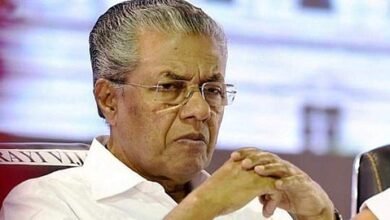
Karur Tragedy Casts Dark Shadow Over Actor Vijay’s Political Debut; Leadership Goes Incommunicado
CHENNAI: A deadly stampede at a political rally in Karur, Tamil Nadu on Saturday has dealt a severe blow to actor Vijay’s nascent political career, casting a dark shadow over his much-anticipated entry into the state’s political arena. The tragedy, which claimed the lives of at least 40 people and left over 150 injured, has led to intense criticism of his new party, the Tamizhaga Vetri Kazhagam (TVK), for gross mismanagement. In the aftermath, Vijay has reportedly secluded himself in his Chennai residence amidst heavy police security, while senior party leaders have become unreachable, their phones switched off, creating widespread confusion and dismay among the party’s rank and file.
The rally, intended to be a grand spectacle cementing Vijay’s transition from a cinematic superhero to a real-life political leader, descended into chaos. Eyewitnesses allege that the actor, instead of leading from the front during the crisis, hastily left the venue, seemingly ignoring cries for help. Overcrowding, a significant delay in the actor’s arrival, and a complete failure of safety protocols are being cited as the primary reasons for the catastrophic stampede.
The incident has thrown Vijay’s political ambitions, particularly his aim to emerge as a third force against the established Dravidian parties, into jeopardy. The actor had recently announced the formation of TVK and his intention to contest the 2026 Assembly elections as a Chief Ministerial candidate, even declaring he would quit his film career for politics. However, this disastrous first major outing has raised serious questions about his and his party’s capability to govern.
Legal repercussions have already begun, with a petition filed in the Madras High Court by one of the injured, seeking a ban on all of Vijay’s rallies and public meetings until the investigation is complete. The plea squarely blames a lack of proper planning for the tragic loss of life.
Adding to the crisis of confidence, the TVK district committee office in Karur remains locked. Party cadres report that key figures, including the district secretary, are incommunicado, having allegedly left town with their families following the incident. The stark contrast between Vijay’s on-screen image as a saviour of the masses and the current leadership vacuum has become a major point of political debate across Tamil Nadu, leaving the future of his political journey under a cloud of uncertainty.








